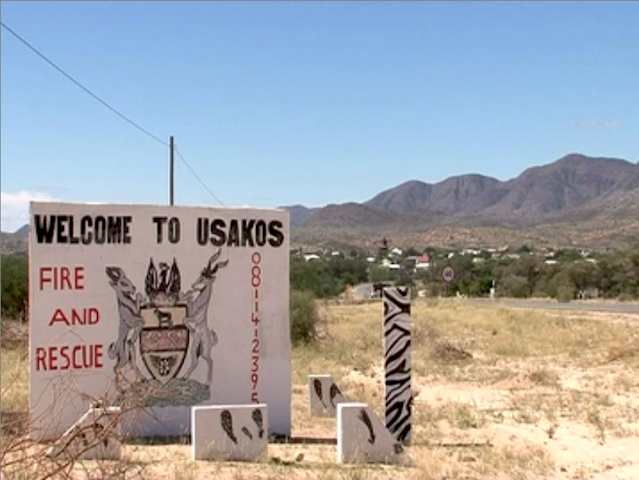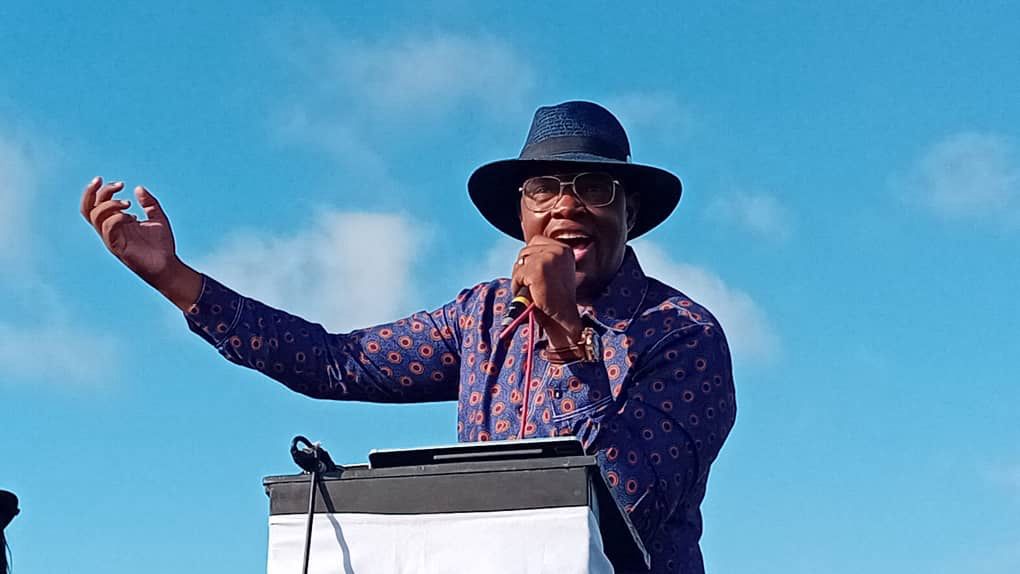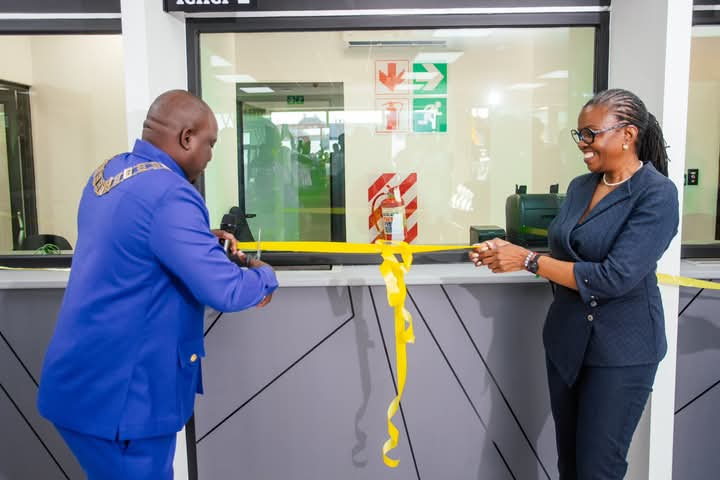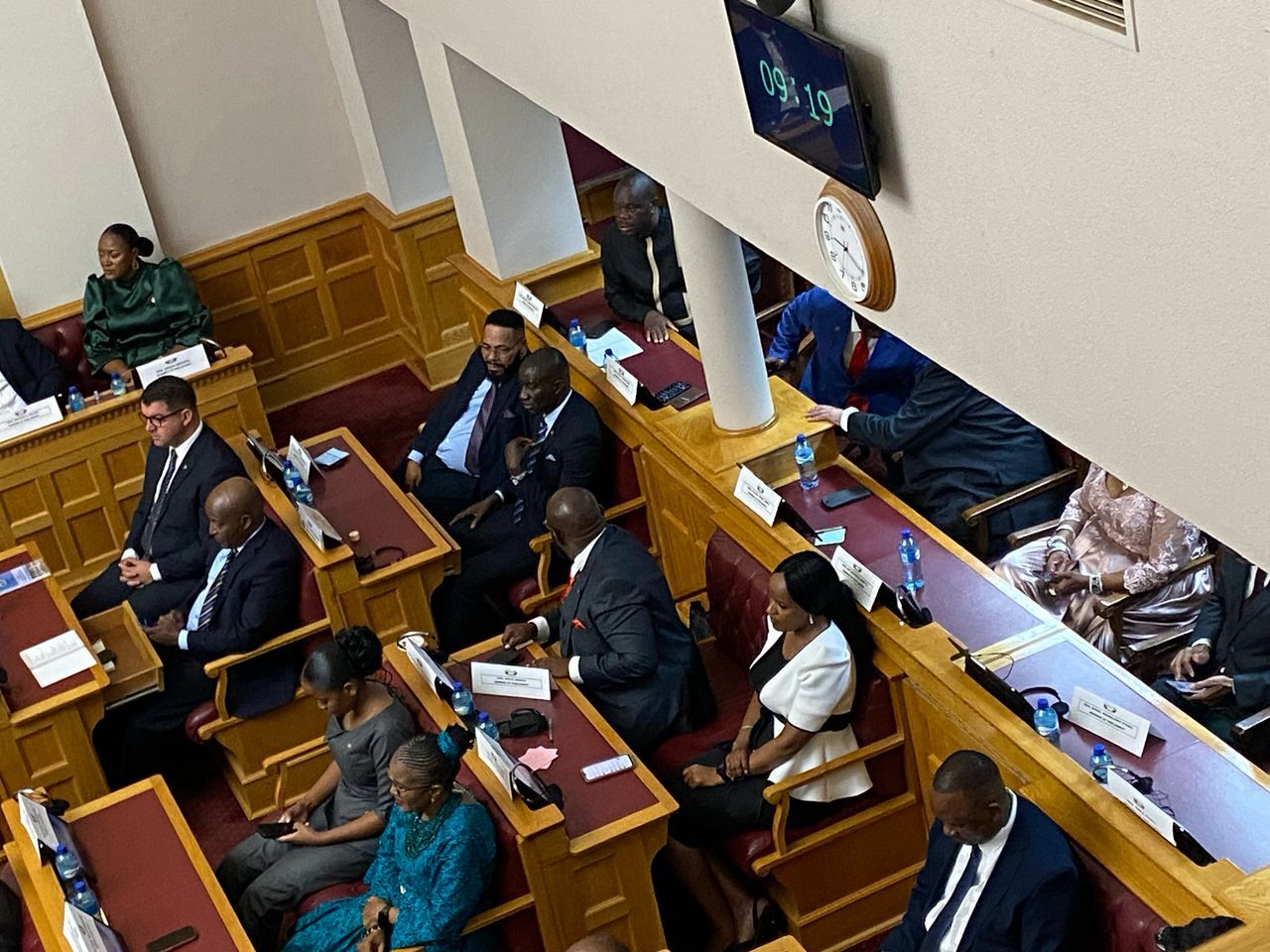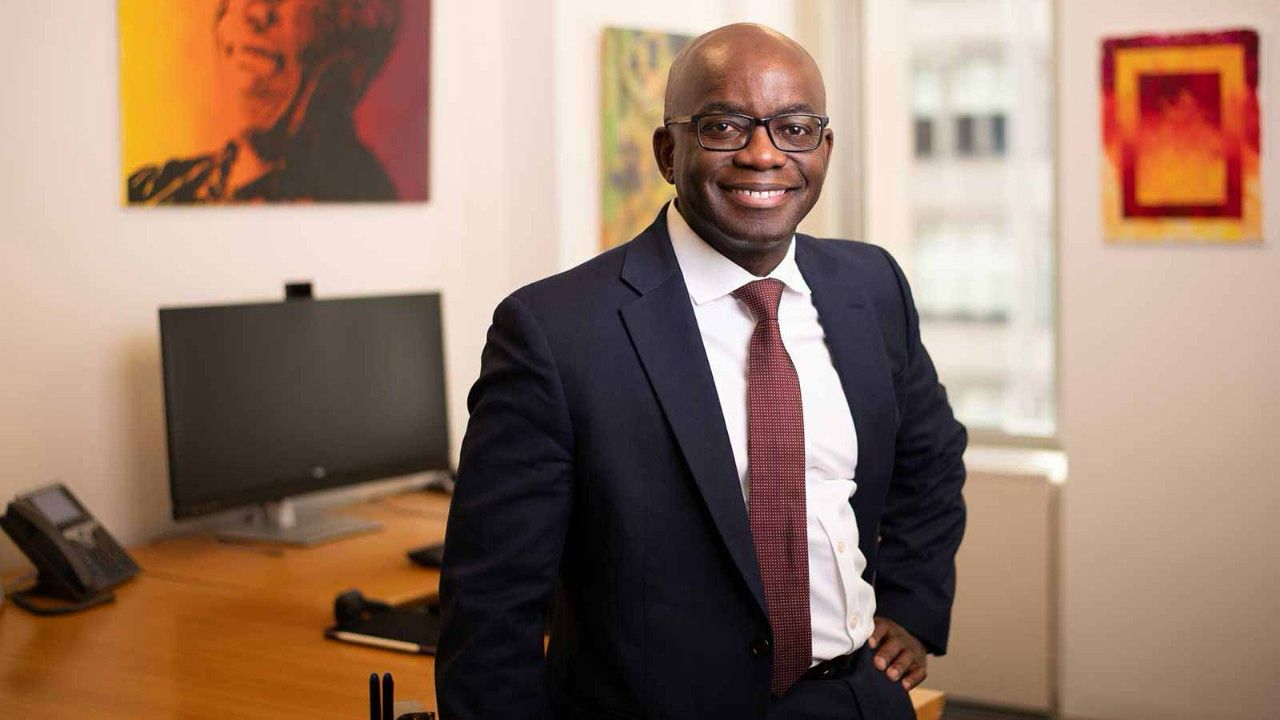THE Usakos Town Council plans to create about 1 600 direct and indirect new employment opportunities with the establishment of a multi-million dollar fuel and gas storage facility at the town within the next few years.
MDL International Trade is in the process of setting up the facility worth N$700 million at the town on 15 hectares of land it bought from the town council.
This was revealed by Erongo governor Cleophas Mutjavikua in his state of the region address at Swakopmund on Tuesday evening.
Mutjavikua informed Erongo residents that the envisaged fuel and gas terminal, with the capacity of over 200 million litres, is mainly planned for the distribution of fuel and gas products to countries such as Angola, Botswana, the Democratic Republic of Congo, Zambia and Zimbabwe.
“We can confirm that MDL International has already commenced with phase one, which is the establishment of the logistics centre at the town of Usakos. Phase two, which will involve the construction of the actual storage terminal, will commence during this year,” explained Mutjavikua.
He said the entire investment by the company would amount to over N$43 billion after completion.
The construction of the storage facility will take about 18 months, and work on the temporary logistics base at the town has already created about 120 direct and indirect jobs.
The project falls within government’s strategic plan to align the country as a strategic logistics hub and gateway to other Southern African Development Community (SADC) countries for trade by the year 2022.
Fuel and gas imports will be transported from the port of Walvis Bay and stored at the facility before being transported to other SADC member states.
Usakos lies on the banks of the Khan River, some 140 kilometres north-east of Swakopmund in the Erongo region. It is located on the B2 Trans-Kalahari Highway, the main road between the port of Walvis Bay and Johannesburg, South Africa.
Usakos’s current unemployment rate is reported to be around 60%, and the town has not seen sustainable development since Namibia attained independence from South Africa in 1990.
Usakos was downgraded from a municipality to town status in 2010 and is now governed by a town council.
The town has about 3 000 inhabitants and occupies approximately 58 square kilometres of land.
MDL, which started its operations in Namibia in 1998, provides integrated shipping and logistics solutions to the energy, mining, and infrastructure sectors.
It is headquartered in Windhoek.
Mutjavikua also said there are plans to build a desalination plant in the next few years in response to growing water supply demands in the coastal areas.
Plans for the construction of the plant, Mutjavikua said, are driven by the ever-growing concerns that fresh water supplies in the entire Erongo region are insufficient at the present moment, and demand for water is set to continue rising in the coming years.
“We plan to set up the Erongo water utility company under the Erongo Development Agency with the intention of ensuring the availability and sustainable utilisation of potable water in the region through the establishment of a new desalination plant for the region,” the governor said.
Mutjavikua said they are now busy engaging Israeli private partners in a “20-year-build operate and transfer (BoT) agreement” to construct a desalination plant in Erongo.
He explained that besides industrial development and residential use, the water of the envisaged desalination plant would also be channelled towards agricultural irrigation throughout the region.
Agricultural green scheme sub-stations will be established along the pipeline from the sea to the plant, and the project will establish 300 000 hectares along the 420-kilometre pipeline for agricultural initiatives.
It is hoped this will boost agricultural productivity, create agribusinesses, enhance food security and increase employment opportunities in the region.
External investors will fund the project development on a “20-year BoT” basis.
“Every five years will see a gradual transfer of skills and ownership to Namibians till the completion of the said years.”
Another long-term goal for the project is to produce fodder and ensure livestock slaughtering in Namibia to help local livestock producers and country to benefit from the government’s agreements with the European Union and the United States of America.
Meanwhile, the Areva Resources Mining Company, which owns the Trekkopje Uranium Mine, has already invested millions of Namibia dollars in the construction of its desalination plant during the 2016/17 financial year.
Rio Tinto, which owns the Rössing Uranium Mine, is also reportedly planning to build its own desalination plant.
The two mines are in the Erongo region.
Stay informed with The Namibian – your source for credible journalism. Get in-depth reporting and opinions for
only N$85 a month. Invest in journalism, invest in democracy –
Subscribe Now!




